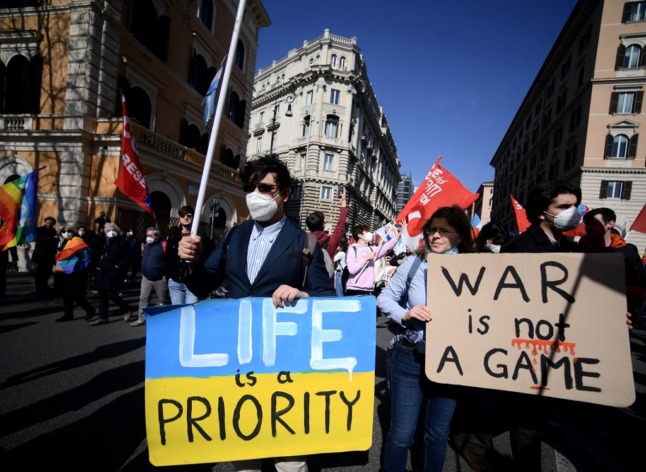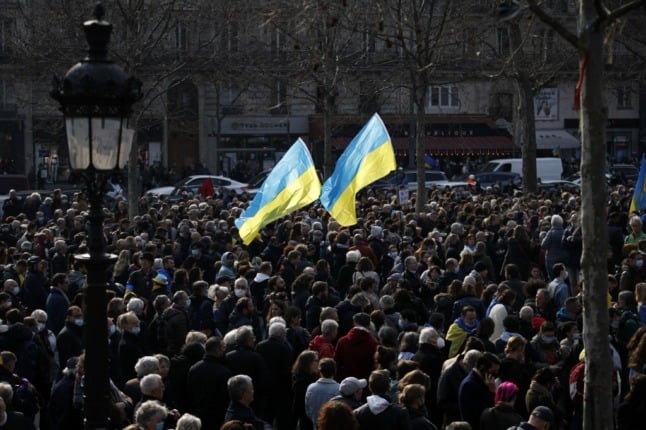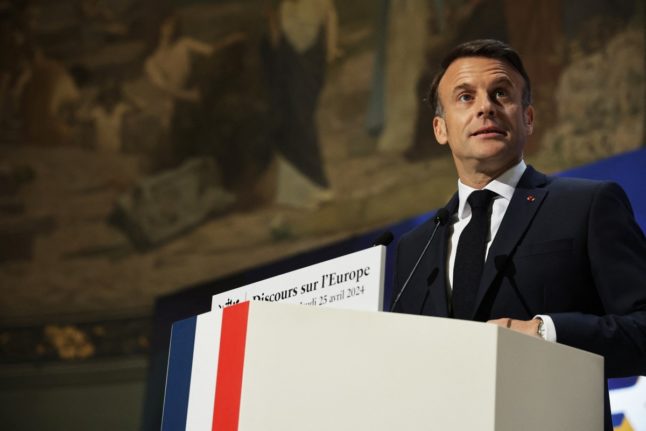Citizens across Europe and the world have been horrified by Russian President Vladimir Putin’s attack, which began on February 24th and appeared to be entering a new phase with escalating bombardment.
Around 41,600 people demonstrated in 119 protests in towns and cities across France, according to interior ministry estimates. In Paris itself, some 16,000 turned out.
“Despite the suffering, we are going to win, we are sure of it,” said Nataliya, a Franco-Ukrainian with the blue-and-yellow Ukrainian flag draped over shoulders, at the Paris protest.
She declined to give her full name because of concerns about the safety of her son in Ukraine. “We are proud of their courage, their determination,” she added.
“We will be here every weekend, in Paris or elsewhere, until Putin leaves, withdraws his tanks,” said Aline Le Bail-Kremer, a member of Stand With Ukraine, one of the organisers of the protest.
One of the largest rallies to demand the withdrawal of Russia’s troops from Ukraine on the invasion’s 10th day was in Zurich, where organisers believed 40,000 people took part, Switzerland’s ATS news agency reported.
Demonstrators in the largest Swiss city called for “peace now”, while others carried signs saying: “Stop War” and “Peace”.

‘No to Putin, no to NATO’ –
In the centre of Rome, unions and organisations rallied in a large “procession of peace”, demonstrating against Putin but also NATO.
“No base, no soldier, Italy out of NATO,” chanted pacifists preceded by a large flag in the colours of the rainbow.
“This is perhaps one of the first real demonstrations for peace,” Italian cartoonist, actor and writer Vauro Senesi told AFP.
“Here no one believes we make peace with arms, that we make it by sending arms to one of the parties (Ukraine).”
More than a thousand people also demonstrated in the Croatian capital Zagreb with banners saying: “Stop the War, Save Europe” and “Glory to Ukraine”.
In the Balkans, the invasion has revived dark memories of the bloody break-up of Yugoslavia in the 1990s, which killed more than 100,000 people during a series of conflicts.
Last weekend, hundreds of thousands also turned out in yellow and blue across Europe including in Russia, Germany, Spain, Finland and the Czech Republic.
READ ALSO:



 Please whitelist us to continue reading.
Please whitelist us to continue reading.
EU needs a EU army not NATO an old school cold war era alliance, an army that will address the security concerns of the bloc inc neutral countries.